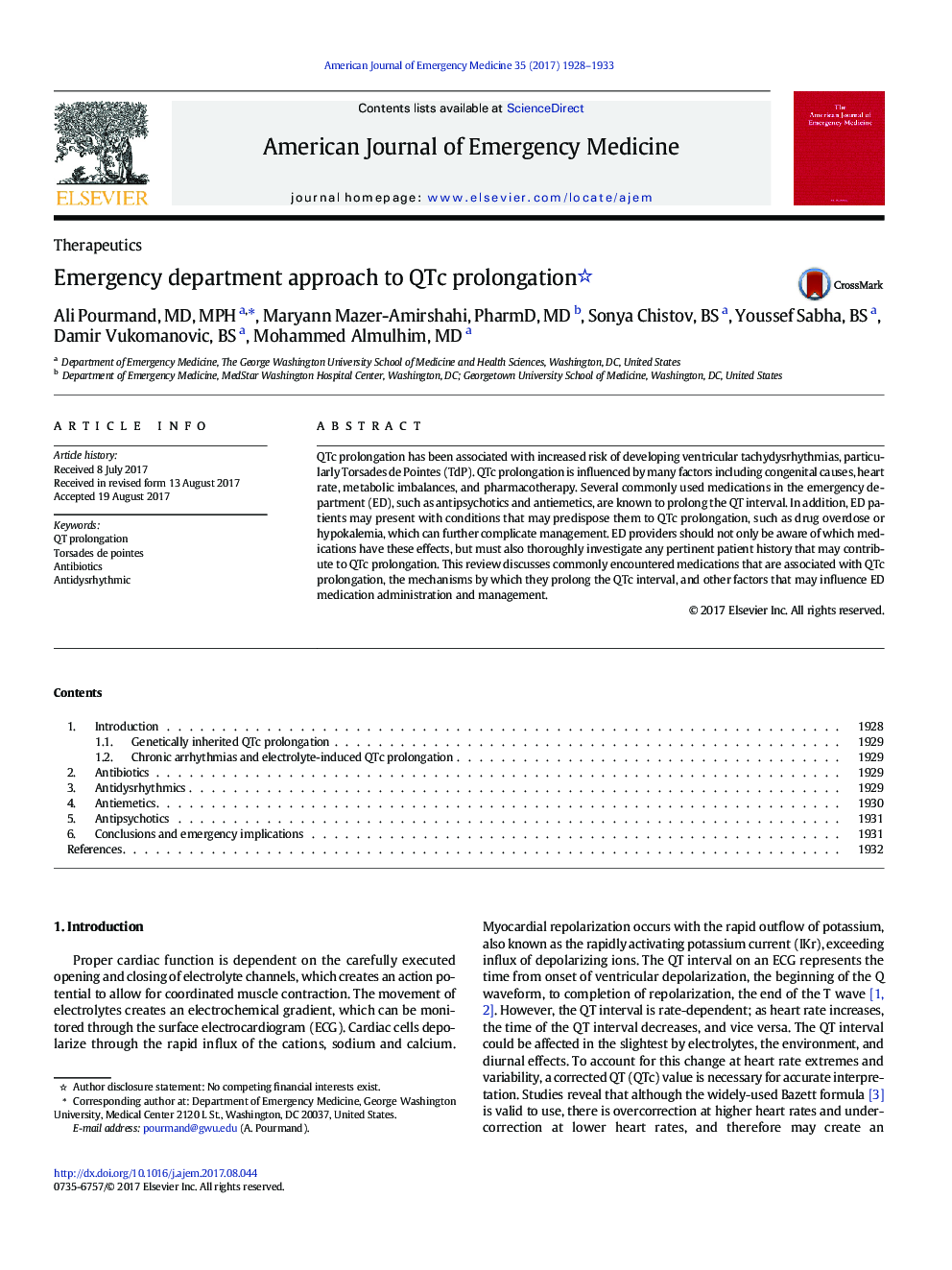| Article ID | Journal | Published Year | Pages | File Type |
|---|---|---|---|---|
| 8717579 | The American Journal of Emergency Medicine | 2017 | 6 Pages |
Abstract
QTc prolongation has been associated with increased risk of developing ventricular tachydysrhythmias, particularly Torsades de Pointes (TdP). QTc prolongation is influenced by many factors including congenital causes, heart rate, metabolic imbalances, and pharmacotherapy. Several commonly used medications in the emergency department (ED), such as antipsychotics and antiemetics, are known to prolong the QT interval. In addition, ED patients may present with conditions that may predispose them to QTc prolongation, such as drug overdose or hypokalemia, which can further complicate management. ED providers should not only be aware of which medications have these effects, but must also thoroughly investigate any pertinent patient history that may contribute to QTc prolongation. This review discusses commonly encountered medications that are associated with QTc prolongation, the mechanisms by which they prolong the QTc interval, and other factors that may influence ED medication administration and management.
Related Topics
Health Sciences
Medicine and Dentistry
Emergency Medicine
Authors
Ali MD, MPH, Maryann PharmD, MD, Sonya BS, Youssef BS, Damir BS, Mohammed MD,
